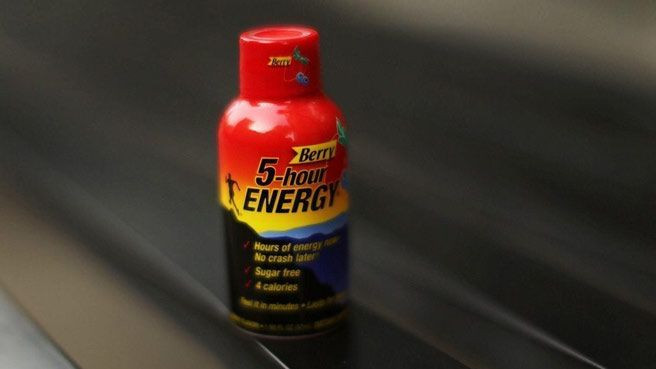5-Hour Energy Makers Are Being Forced To Hand Over Data Regarding Product's 'No Crash' Guarantee

Makers of 5-Hour Energy drinks will have to hand over data regarding the product's “no crash” guarantee and exactly how safe it is for teenagers to use. Legal documents filed by the Oregon Department of Justice state a request for unredacted copies of the data was “steadfastly refused.”
The state of Oregon originally requested data claiming 73 percent of 3,000 doctors recommended 5-Hour energy back in January 2013. However, a portion of the information was left out. A second request back in April was denied by representatives from 5-Hour Energy. According to the Food and Drug Administration, 92 “adverse incident reports” have involved 5-Hour Energy, including 13 reported deaths, spontaneous abortions, and heart attacks.
“The ownership of 5-Hour Energy’s formulations provided all the ingredients, only redacting specific amounts, which it considers highly confidential and proprietary trade secrets,” 5-Hour Energy spokeswoman Elaine Lutz told ABC News. “In direct contrast to other products, 5-Hour Energy is not marketed to children or marketed as a beverage. It was specifically designed for, and is exclusively marketed to, hardworking adults.”
Innovation Ventures LLC, Living Essentials LLC, and Microdose Sales LLC have all been named in the papers filed by Attorney General Ellen Rosenblum, The Oregonian reported. The Oregon Department of Justice has given these companies until Feb. 15 to hand over these documents.
Research presented at this year’s American Heart Association added a disturbed heart rhythm and a spike in blood pressure to certain energy drinks' side effects. Data was compiled following the death of a teenage girl who went into cardiac arrest after drinking a Monster energy drink this past fall.
The research team led by Dr. Sachin A. Shah of the University of the Pacific in Stockton, Calif., recruited healthy patients between the ages of 18 and 45 to determine the side effects of energy drinks. Ninety-three people who had just consumed one to three cans of energy drinks had their QT interval tested. QT interval is tested using an electrocardiogram that measured the heart’s rhythm.
Results from this study showed that participants who consumed an energy drink displayed a QT interval that was 10 milliseconds longer than a person who had not consumed an energy drink. Blood pressure also increased by 3.5 points in participants who consumed energy drinks prior to having their QT interval measured.
"The correlation between energy drinks and increased systolic blood pressure is convincing and concerning, and more studies are needed to assess the impact on the heart rhythm," said Dr. Shah. "Patients with high blood pressures or long QT syndrome should use caution and judgment before consuming an energy drink.”
Published by Medicaldaily.com



























